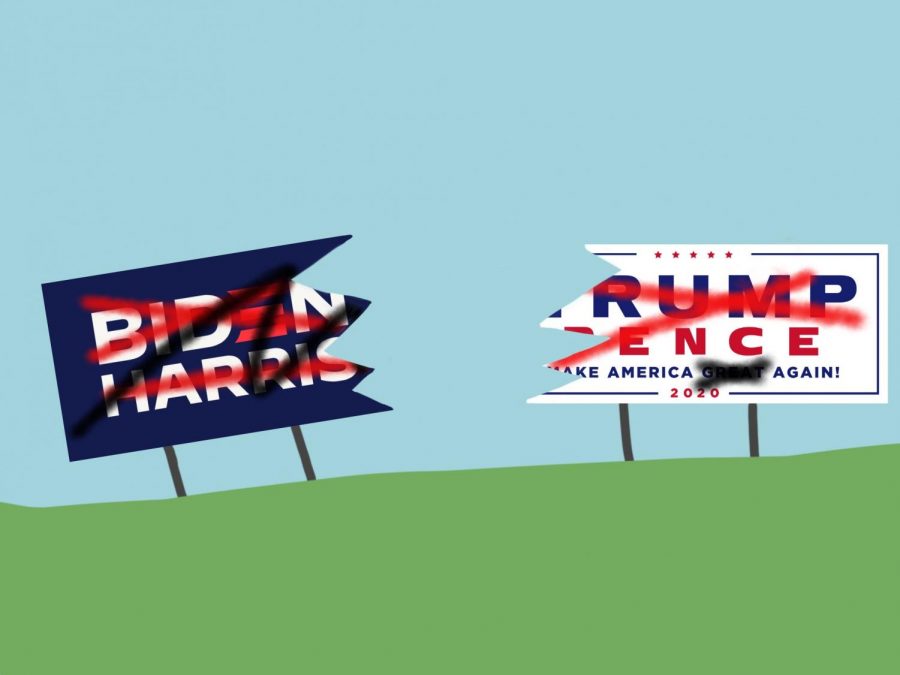America has a party problem
Staff Writer Jared Lipkin writes that every American has a role to play in the limiting of hyper-partisanship in the country.
October 26, 2020
As George Washington left the presidency in 1796, he published a farewell address to the nation. In that document, our first president pleaded the country to focus on a goal of national unity and strongly warned against partisan politics. In his words, “[the party] agitates the community with ill founded jealousies and false alarms [and] kindles the animosity of one part against another”.
Even before Washington left office, however, the influence of parties had become deeply embedded in our political system. And the nature of a two-party system meant that citizens would constantly be pitted against one another.
Washington was right to be afraid.
Political parties have always sought to gain power by vilifying their opponents, but now it is worse than ever. Democrats and Republicans alike argue those who believe something different from their own beliefs are not just wrong, but anti-American.
This is deeply, dangerously wrong.
American democracy – indeed, all modern democracies – are founded upon the principle that all citizens should hold the freedom to express their beliefs. When a political party denounces the other’s ideas as “anti-American”, they undermine this fundamental American value.
Many people have criticized President Donald Trump for his promotion of this political divide between Americans. Some even say he is the root cause of American hyper-partisanship today.
I disagree (though I agree he has made the problem worse): I believe Donald Trump gained power as a result of hyper-partisanship.
He beat Hillary Clinton because he was able to frame Democrats as untrustworthy and anti-American. But Donald Trump didn’t invent these misconceptions, merely amplified them; capitalizing on his ability to drum up support, he won by inducing significant Republican turnout at the polls on Election Day in2016.
Even before President Trump announced his candidacy for president, the United States was barreling towards a toxic political climate.
Part of this is simply human nature. Thanks to the confirmation bias (a psychological phenomenon where our brains reinforce our beliefs while ignoring evidence that contradicts them), people will reinforce their own ideas while discounting others’ at face value.
The rise of the internet and social media has made this far worse. Social media algorithms use profile visits, liked posts, and other interactions to “guess” what content a viewer wants to see. This forms an “information bubble”; a viewer becomes trapped by information that supports their own position, limiting exposure to opposing viewpoints. News channels do the same; staff members project their own viewpoints onto viewers every time they report the news.
Therefore, Joe Biden can frame this election as a fight to “restore the soul of the nation”. But whether or not he wins, that promise will not be fulfilled; it will require massive societal changes to limit American hyper-partisanship.
Biden cannot change society single-handedly; we all must play our part. Each of us must make an effort to listen to the arguments of those who disagree with us. We must decide for ourselves whether those arguments have merit: do not allow anyone to influence your opinion.
Regardless of one’s beliefs, we are all Americans. Everyone would be better off if we remembered all of us have the nation’s best interests at heart.












Erica Lebrun • Oct 26, 2020 at 6:00 pm
Love this Jared! Thankful for your thoughtful reporting and for the historical facts!